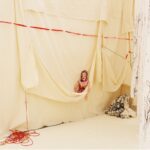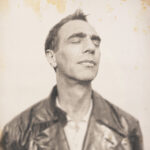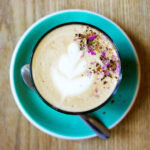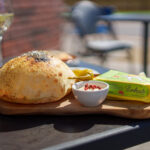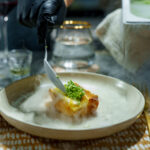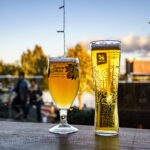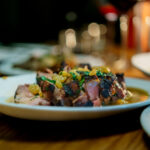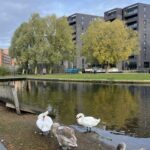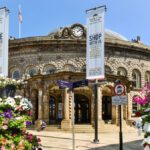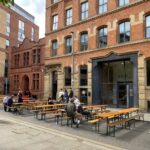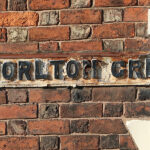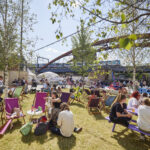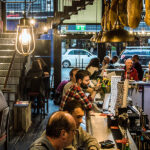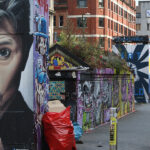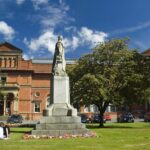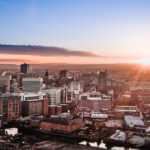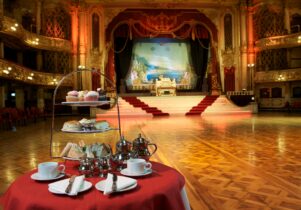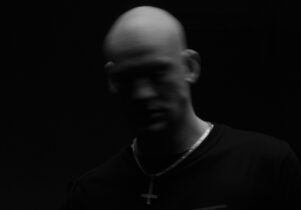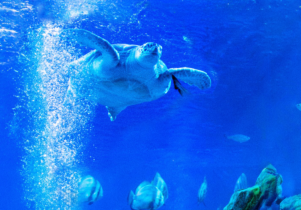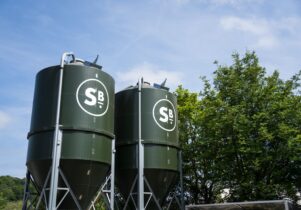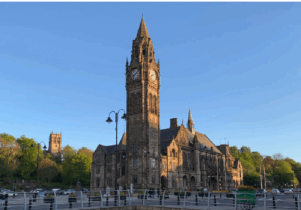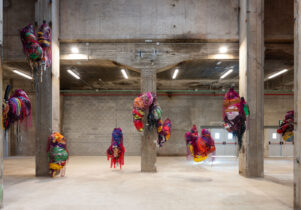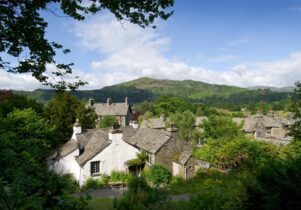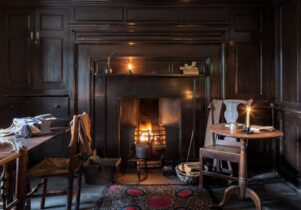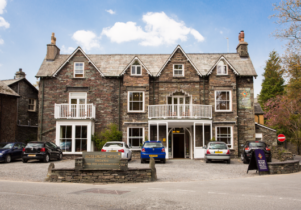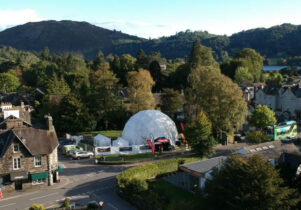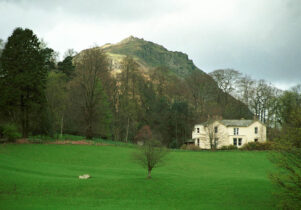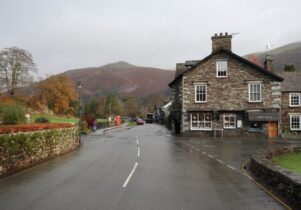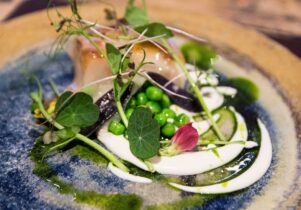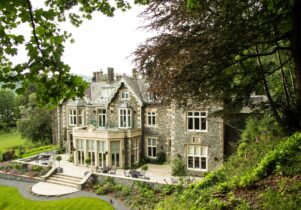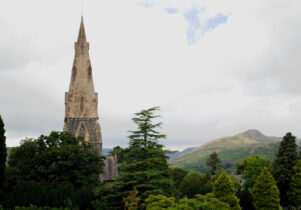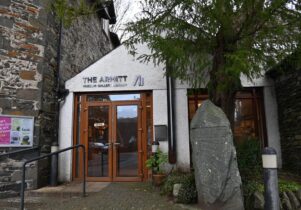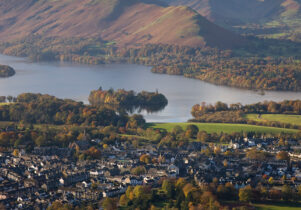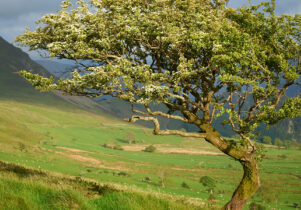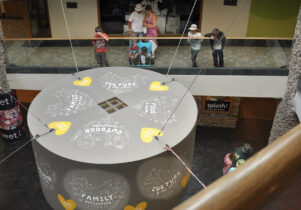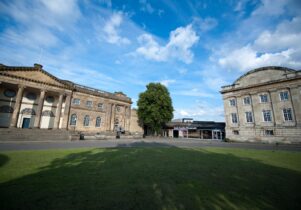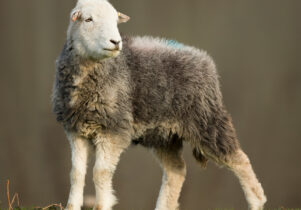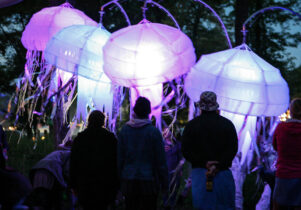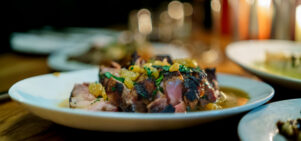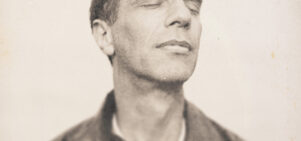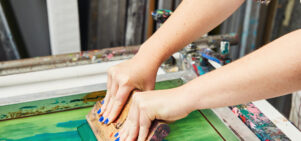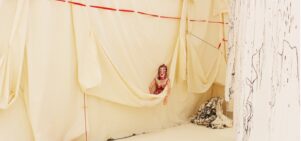Kurt Schwitters’ Merzbarn
David BanningVisit now
Kurt Schwitters’ Merzbarn
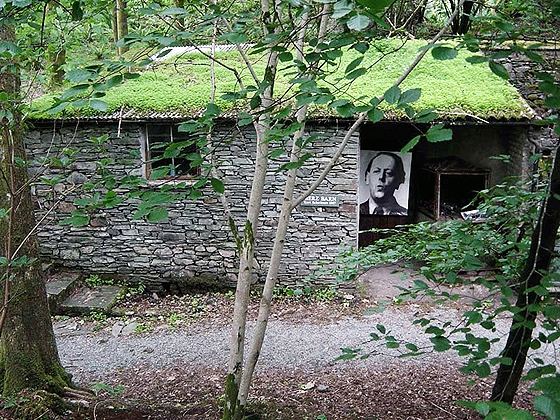
This hidden-away hut is actually a monument to a forgotten man – and is one of Europe’s key lost works of Modernism.
On the site of a former gunpowder works, nestled amongst the woods and just a short distance from the village of Elterwater, near Ambleside in the Lake District, resides a monument to a forgotten man: the Merzbarn. The man in question is Kurt Schwitters, one of the most influential artists of the 20th century. For nearly 65 years since the German artist’s death in poverty and obscurity in 1948, this unique artwork, part sculpture, part barn, has stood in relative isolation, receiving scant mention in local tourist publications and unseen by most Lake District visitors. Today, the future of the unfinished “Elterwater Merzbarn”, considered by Schwitters to be “the greatest sculpture of my life”, is uncertain. Annual funding to the organisation that cares for it was cut in 2011; the following December, the Department for Environment, Food & Rural Affairs (DEFRA) stepped in with a one-off grant to make urgent structural repairs.
Today, the future of the work, considered by Schwitters to be “the greatest sculpture of my life”, is uncertain
Schwitters’ wide-ranging influence, on artists as diverse as Richard Hamilton, Robert Rauschenberg, Joseph Beuys and Damien Hirst, shouldn’t be underestimated. Last year, Tate Britain hosted Schwitters in Britain, the first major exhibition of his late work. This show focused on the period after Schwitters’ arrival in Edinburgh as a refugee on the run from Nazi Germany in 1940 until he died in Kendal in 1948, and it referenced the Merzbarn, a work that the Tate now acknowledges as “one of the key lost works of European Modernism”.
The story of Schwitters’ career is an eventful one. After WWI, he flirted with various Dada groups in Europe, although he preferred the positive aspects of art rather than Dada’s “anti-art” stance. The concept of “Merz” was unique to Schwitters; it derived from an advert for the Commerz–und–Handelsbank he’d cut up for an early collage. He subsequently united all his artistic activity by naming his works Merz drawings, Merz sculpture, Merz paintings and, eventually, the Merzbau (Merzbarn) sculptural installations constructed from plaster, wood and found objects. Schwitters always used found objects: newspaper clippings, train tickets, pieces of wood and bits of fabric. The enduring legacy of Merz meant that a work of art could be made anywhere, in any material.
The Elterwater Merzbarn is one of four started in his lifetime, although he only managed to work for three months on it. A small hut made from local slate, Schwitters remarked to his son, Ernst, that it was “not so Dadaistic” as the previous Merzbaus constructed in his native Hanover (destroyed by an RAF bomb in 1943) or the two made when he took refuge in Norway in 1937.
I made my own pilgrimage to Elterwater, enduring the sort of weather that only the Lake District can supply. Now looked after by the Littoral Arts Trust, the site faces financial difficulties: Arts Council funding was cut off in 2011, though a later grant from DEFRA has lead to much-needed structural repairs being undertaken throughout 2013. The building is now watertight, has electricity and, outside, a new stone “plaza”. This plaza was created as part of a series of artist residencies by the London-based artist, Jill Rock; it is designed as a memorial to the “Entarte Kunst artists” (infamously denounced as “degenerate” by Hitler, a list of artists that included Schwitters’ name). It is made entirely out of a huge tree root and acts as a table to honour the subject of Schwitters’ most famous poem, Anna Blume.
On my last visit, the Trust’s continuing work was immediately apparent. A recent project with local schools had led to found sticks, painted colourfully, being hung on elongated display boards beside the path heading up towards the barn, while a little further on there were several intricate works based on old OS maps, made by local artist Elizabeth Shorrock in homage to the Lake District places that Schwitters inhabited. Inside, the sound of rain drops permeated as a lit candle rested in front of a large photograph where the original Merzbarn artwork once stood. The photo showed the relief sculpture in situ, shortly before it was removed in 1965, under the instruction of Richard Hamilton. This artist undertook the mammoth task of removing, restoring and preserving the wall when it was installed at the Hatton Gallery, Newcastle, where it remains today. Close by was Bruce Ingram’s layered sculpture, “Merzsaule” (Merz column), where large scraps of white painted wood towered up towards the ceiling like a shard of spontaneous physicality, whilst local carpenter Andrew Rodelly had erected an angular wall structure just inside the entrance, with niches to house a few more of Elizabeth Shorrock’s found objects.
Last year’s exhibition at Tate Britain, and other projects such as the recreation of the Merzbarn at the Royal Academy, have helped reaffirm Kurt Schwitters’ continuing influence. And although the Littoral Arts Trust continues to raise money for the preservation and development of the Merzbarn site, the uncertainty surrounding its future is without doubt a slight on the cultural landscape of Cumbria. Much has been done to draw attention to the significance of his art in the Lake District, via the archive at the Armitt Museum & Library in Ambleside, for example, or the collection displays at Abbot Hall, yet most passers-by can easily miss the place where one of Britain’s most important post-war artworks was created. There is much more to be done, not only to ensure that the site can be opened on a regular basis, but perhaps in the form of a full restoration. The challenges that Schwitters faced in life and through his work – immigration, asylum, being a refugee – are as resonant today as ever. As Schwitters so aptly pronounced, “art seeks to liberate humans from life”.


